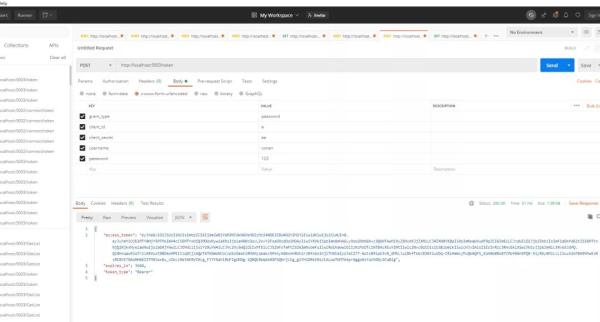本篇内容介绍了“如何在Ocelot网关中实现IdentityServer4密码模式”的有关知识,在实际案例的操作过程中,不少人都会遇到这样的困境,接下来就让小编带领大家学习一下如何处理这些情况吧!希望大家仔细阅读,能够学有所成!
IdentityServer4 是为ASP.NET Core 2.系列量身打造的一款基于 OpenID Connect 和 OAuth 2.0 认证框架。将identityserver部署在你的应用中,具备如下的特点可以为你的应用(如网站、本地应用、移动端、服务)做集中式的登录逻辑和工作流控制。IdentityServer是完全实现了OpenID Connect协议标准。在各种类型的应用上实现单点登录登出。为各种各样的客户端颁发access token令牌,如服务与服务之间的通讯、网站应用、SPAS和本地应用或者移动应用等。
OAuth 2.0 默认四种授权模式(GrantType):
授权码模式(authorization_code)
简化模式(implicit)
密码模式(password)
客户端模式(client_credentials)
我们一般项目在api访问的时候,大部分是基于账号密码的方式进行访问接口。比如app端的用户。
下面我们来看下怎么实现密码模式(password)。
1、在认证项目中,创建ProfileService
public class ProfileService : IProfileService { public async Task GetProfileDataAsync(ProfileDataRequestContext context) { var claims = context.Subject.Claims.ToList(); context.IssuedClaims = claims.ToList(); } public async Task IsActiveAsync(IsActiveContext context) { context.IsActive = true; } }2、创建ResourceOwnerPasswordValidator,进行账号密码认证
public class ResourceOwnerPasswordValidator : IResourceOwnerPasswordValidator { public async Task ValidateAsync(ResourceOwnerPasswordValidationContext context) { //根据context.UserName和context.Password与数据库的数据做校验,判断是否合法 if (context.UserName == "conan" && context.Password == "123") { context.Result = new GrantValidationResult( subject: context.UserName, authenticationMethod: "custom", claims: new Claim[] { new Claim("Name", context.UserName), new Claim("UserId", "111"), new Claim("RealName", "conan"), new Claim("Email", "373197550@qq.com") }); } else { //验证失败 context.Result = new GrantValidationResult(TokenRequestErrors.InvalidGrant, "invalid custom credential"); } } }3、调整AllowedGrantTypes 和AllowedScopes
client.AllowedGrantTypes = GrantTypes.ResourceOwnerPassword; List<string> aas = new List<string>(); aas.AddRange(config.AllowedScopes); aas.Add(IdentityServerConstants.StandardScopes.OpenId); aas.Add(IdentityServerConstants.StandardScopes.Profile); client.AllowedScopes = aas.ToArray();
4、ConfigureServices增加AddInMemoryIdentityResources、AddResourceOwnerValidator、AddProfileService
//注册服务 var idResources = new List<IdentityResource> { new IdentityResources.OpenId(), //必须要添加,否则报无效的 scope 错误 new IdentityResources.Profile() }; var section = Configuration.GetSection("SSOConfig"); services.AddIdentityServer() .AddDeveloperSigningCredential() .AddInMemoryIdentityResources(idResources) .AddInMemoryApiResources(SSOConfig.GetApiResources(section)) .AddInMemoryClients(SSOConfig.GetClients(section)) .AddResourceOwnerValidator<ResourceOwnerPasswordValidator>() .AddProfileService<ProfileService>(); services.AddControllers().SetCompatibilityVersion(CompatibilityVersion.Latest);5、在认证项目进行验证,测试成功

6、修改地址,在网关项目进行认证,测试成功

代码地址:
https://gitee.com/conanOpenSource_admin/Example
“如何在Ocelot网关中实现IdentityServer4密码模式”的内容就介绍到这里了,感谢大家的阅读。如果想了解更多行业相关的知识可以关注亿速云网站,小编将为大家输出更多高质量的实用文章!
免责声明:本站发布的内容(图片、视频和文字)以原创、转载和分享为主,文章观点不代表本网站立场,如果涉及侵权请联系站长邮箱:is@yisu.com进行举报,并提供相关证据,一经查实,将立刻删除涉嫌侵权内容。